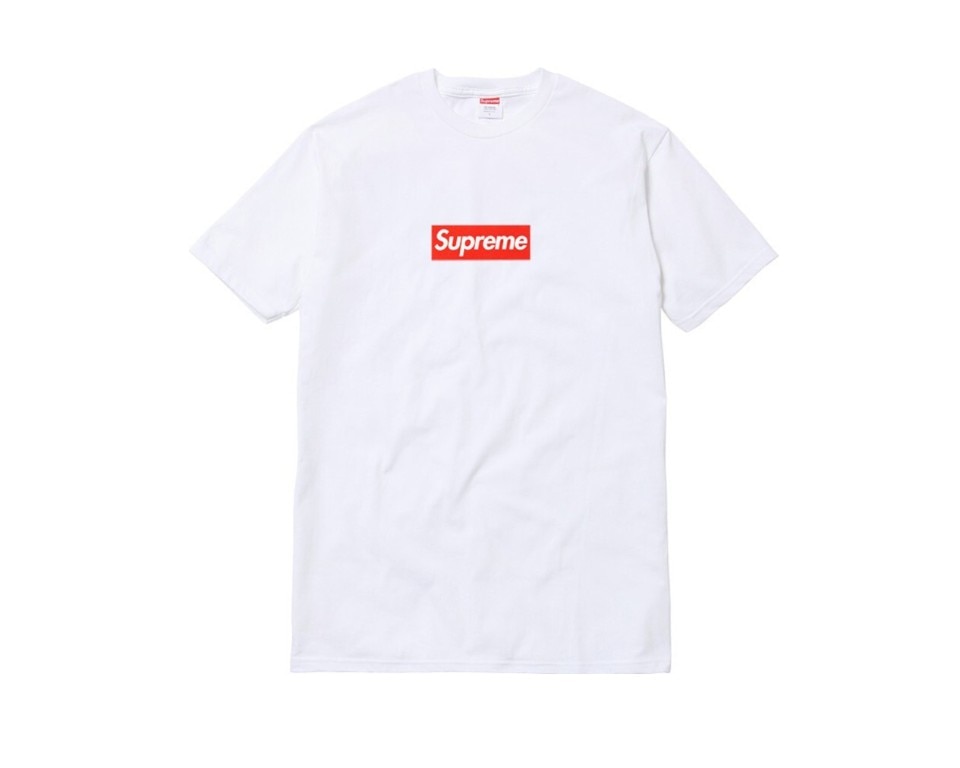Probably a descendant of the medieval white shirt, the simple t-shirt as we know it was born at the end of the 19th century as men's underwear. A tank top, practical and manageable, designed to be the perfect uniform for sailors, recommended to protect against diseases and colds, or to help with posture.
When around 1920 the English dictionary officially adopted the term "t-shirt" due to the shape the short sleeves gave to the garment, the t-shirt became an experiment with new manufacturing techniques and a new range of fabrics, from calico to jersey. In no time, t-shirts began to make their way into men's wardrobes, being marketed by companies (such as Fruits of the Loom), and used in sports. The ever-growing popularity even translated to Hollywood screens in the 1950s, where the most talked-about male characters, often the most rebellious or most charming, wore white t-shirts.
Starting in the 1960s, the potential of the t-shirt expanded into previously unexplored territories: like a blank canvas, ready to literally frame anything, the t-shirt became capable of carrying artistic or humorous messages, as well as provocative and political ones. From the "make love, not war" slogan professed by pacifists in reference to the Vietnam War, to "sisterhood is powerful" used as a slogan for feminist battles, t-shirts became, in effect, tools of protest. Another example is punk culture, which made the t-shirt one of the essential codes of its aesthetic.
But the t-shirt was not destined to remain exclusively within subcultures or the emerging streetwear style. The world of high fashion quickly noticed its popularity, and so, starting in the last decades of the previous century, the t-shirt began to appear on the runway. There was no one who couldn’t reinterpret the t-shirt according to their own style, the ultimate versatile garment: while with Yves Saint Laurent, Ralph Lauren, or Armani, it became a symbol of class, silent wealth, or modest refinement, in the hands of Moschino, Fiorucci, or Vivienne Westwood, it turned into a dangerous artistic tool, camp, ironic, and provocative.
In fact, there is nothing a T‑shirt cannot communicate.
With the arrival of the 2000s, when people started to think that all aspects of daily life could be aesthetic and fashionable, the t-shirt once again proved its ability to cater to the new popular taste. Major brands like Gucci, Versace, and Balenciaga began branding t-shirts, which now featuring the brand name or logo, gained a new, special value. In the same years, the t-shirt made its way into the world of celebrities: a certain allure was discovered in letting a t-shirt speak for its owner, and so some pop icons of the moment, such as Paris Hilton and Britney Spears, used the garment to build their brand, often writing impactful phrases or their catchphrases on the fabric.
Today, the t-shirt allows, in a more accessible and democratic way than any other garment, the personalization of our reality. In fact, there is nothing that a t-shirt cannot communicate: specific messages or viral internet memes, musical tastes or favorite films, cartoons that evoke nostalgia, or photos of celebrities posing. Having truly become a crucial component of contemporary fashion, the t-shirt's winning appeal lies in its apparent simplicity and undeniable comfort, two virtues that make it, in every sense, the symbol of everyday life.
Let's retrace its evolution in sixteen stages.
The nineteenth-century shirt, the perfect uniform
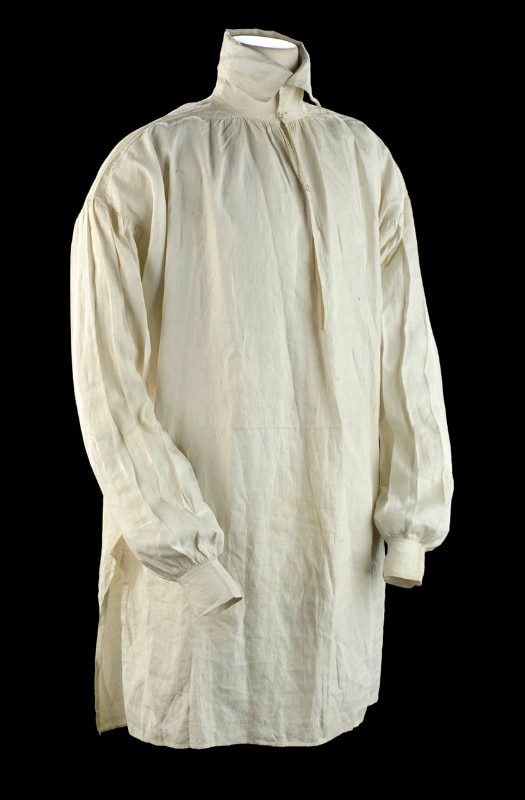
In the 1800s, shirts were used as the base for every type of uniform:
the high collar fastened with two buttons, leaving the two collar edges visible; the pleated sleeves and the cut, which today we might call 'oversized', made the garment comfortable and versatile.
James Dean's white shirt in Rebel Without a Cause
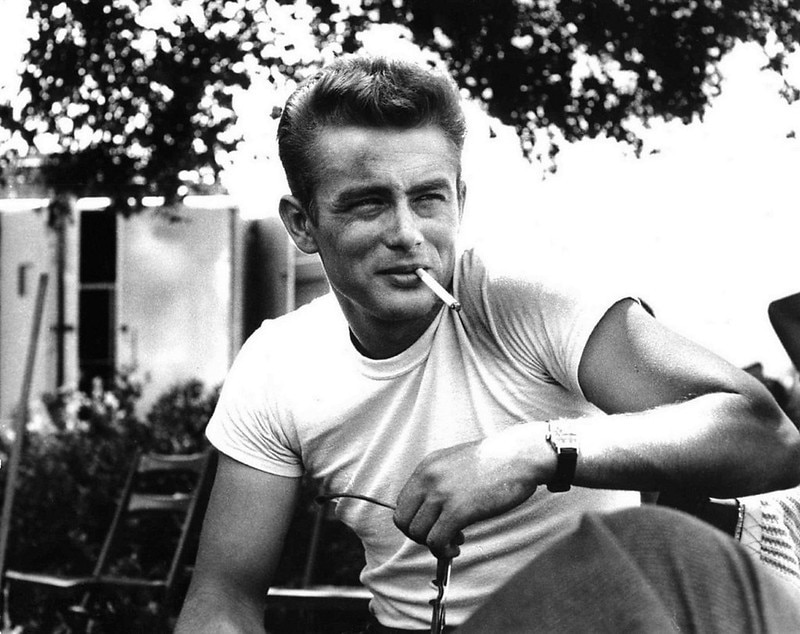
One of the most memorable roles in the history of cinema, James Dean's character represented, for the first time, the youth world and its issues. The white t-shirt became the ultimate symbol of the rebellious young figure.
The legacy of Fruit of the Loom
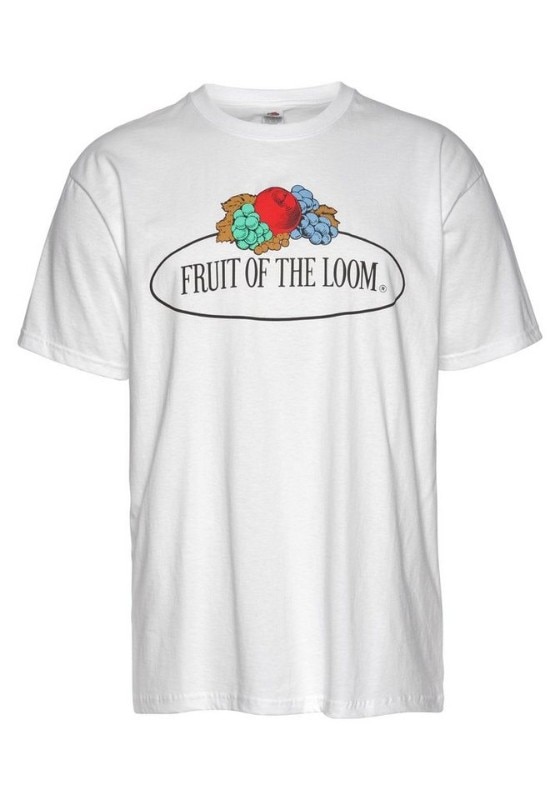
Founded in 1851 in Rhode Island, Fruit of the Loom is one of the longest-standing clothing brands in the industry. Starting in the 20th century, Fruit of the Loom was one of the first to anticipate the potential of the garment, turning the T-shirt into one of its most iconic staples.
The charm of the striped T‑shirt
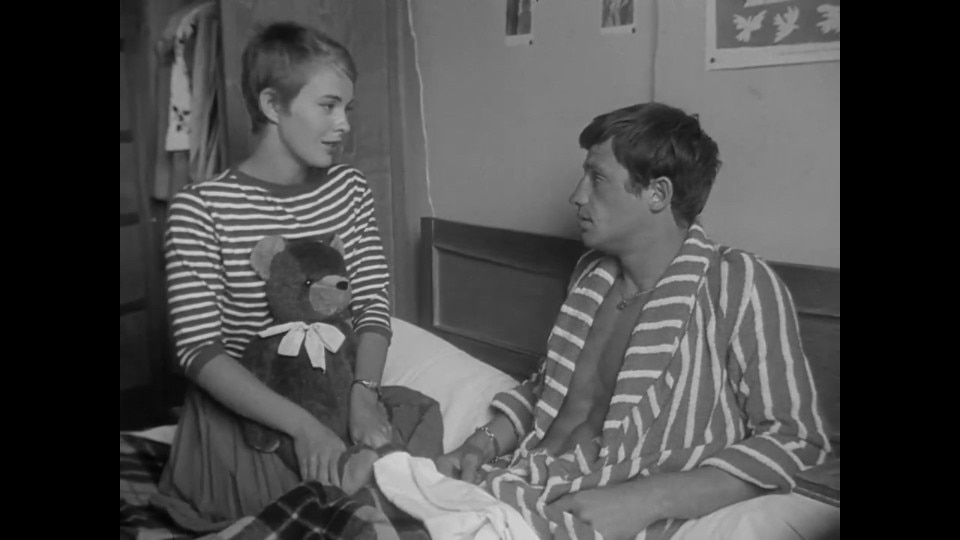
In the iconic film, remembered as a manifesto of the Nouvelle Vague, Jean Seberg wears a striped T-shirt paired with cuffed trousers and an ultra-short haircut, typical of the garçonne aesthetic. Another milestone in the spread of the T-shirt, also through the medium of cinema.
Fiorucci's Victorian little angels
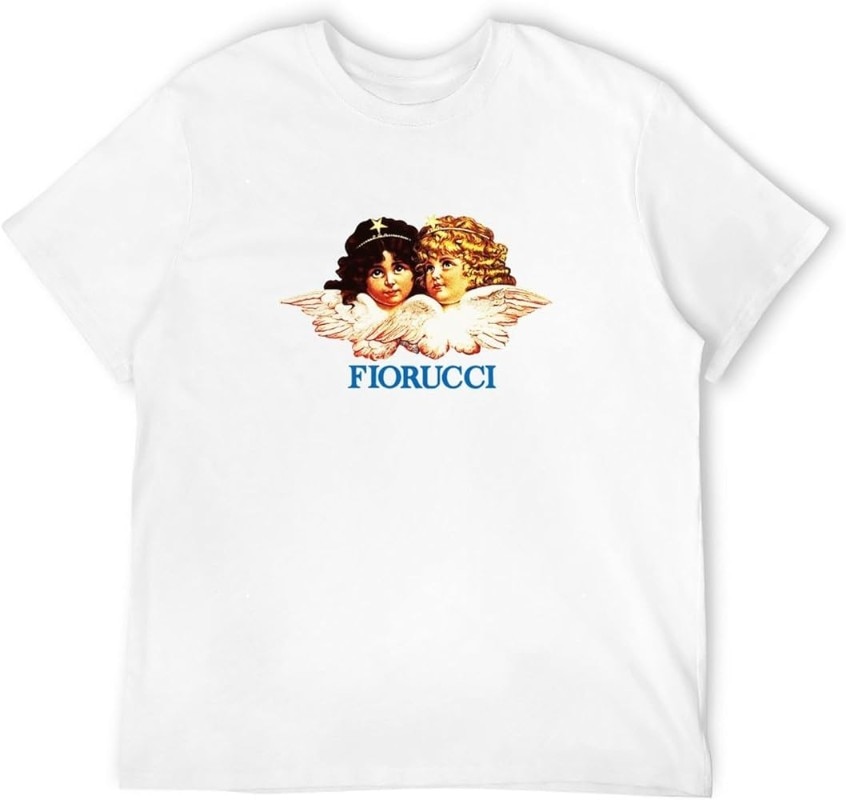
Everything in Elio Fiorucci's hands could be transformed into a pop icon, even a Victorian postcard. This is how the Fiorucci t-shirt with Victorian angels was born, one of the cult symbols of Italian fashion.
Sex Pistols and the punk style
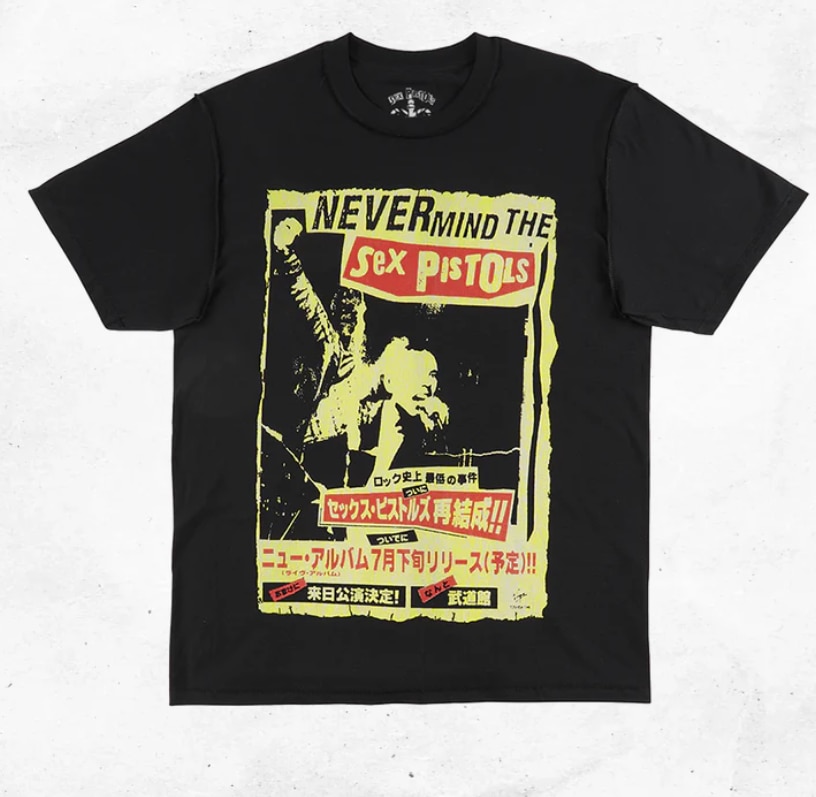
At the heart of punk style, the Sex Pistols emerged during Swinging London’s heyday alongside the SEX boutique, located at 430 King’s Roa, a shop conceived by Vivienne Westwood and Malcolm McLaren. In the name of rebellion and anarchy, the band influenced generation after generation not only in music and culture but also in fashion.
Smiley's debut in Forrest Gump

In one of the most memorable scenes from Forrest Gump, the character played by Tom Hanks encounters a man with ambitions to dominate the T‑shirt market. To clean the mud off his face, Forrest uses a yellow T‑shirt, leaving behind a stain shaped like a smile. The film thus depicts the fictional birth of the famous Smiley symbol.
The Rolling Stones's rock icon
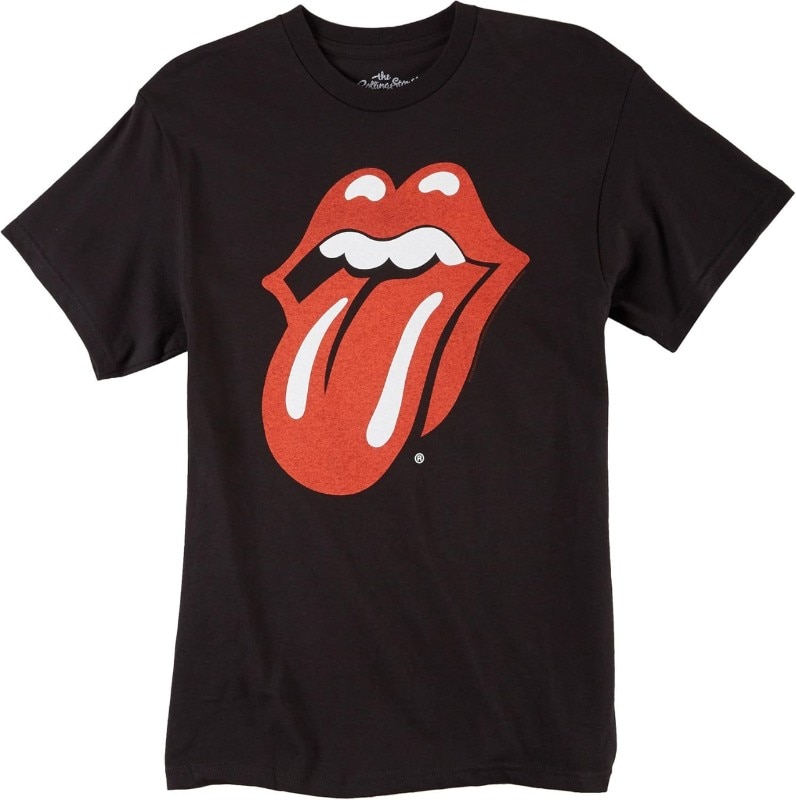
Another classic, a tribute to the rock band. The t-shirt features the famous lips and tongue logo, designed by John Pasche in the '70s and inspired by the Indian goddess Kali.
Gucci's logomania
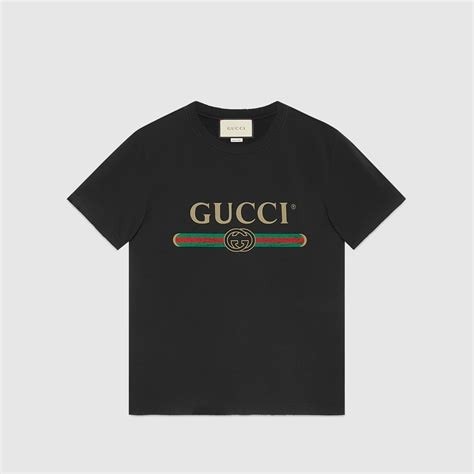
When a luxury brand like Gucci, with its rich and renowned heritage, puts its logo on a black T‑shirt, it takes on a completely different value: exclusivity, elegance, and becoming one with the brand. By leveraging these aspirations, Gucci prominently features the iconic double‑G logo on every product, developing even fabrics and prints showcasing this motif.
Supreme, the american classic
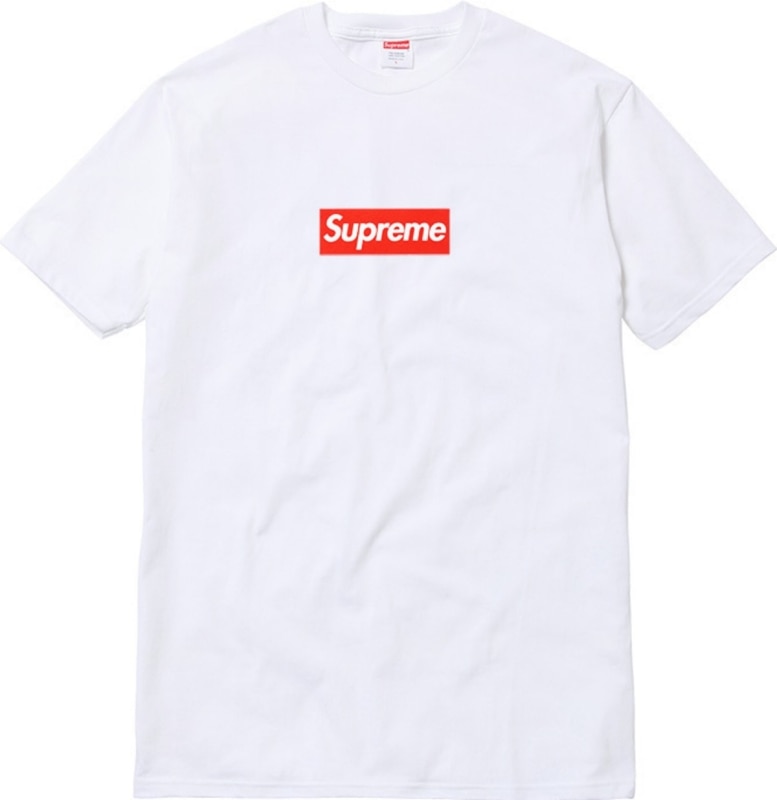
Symbol of streetwear fashion and urban culture, the T‑shirt is renowned for its minimalist and distinctive design. The New York-based brand is acclaimed for its numerous collaborations, both commercial and artistic, with some of the most influential names and labels of the moment.
Paris Hilton, the shirt Queen
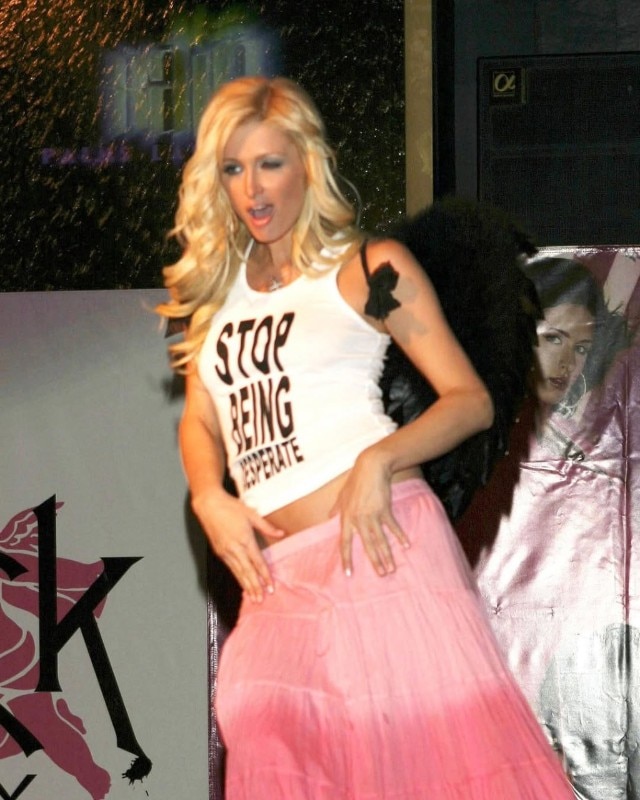
One of the most significant icons of Y2K style, Paris Hilton's wardrobe was filled with simple T‑shirts featuring provocative, trashy, or simply memorable slogans. One of the biggest controversies surrounding the celebrity was the tank top that read 'Stop Being Poor,' which was revealed to be fake only a few years ago after Paris Hilton herself disclosed the truth.
Dsquared2 and streetwear on the runway
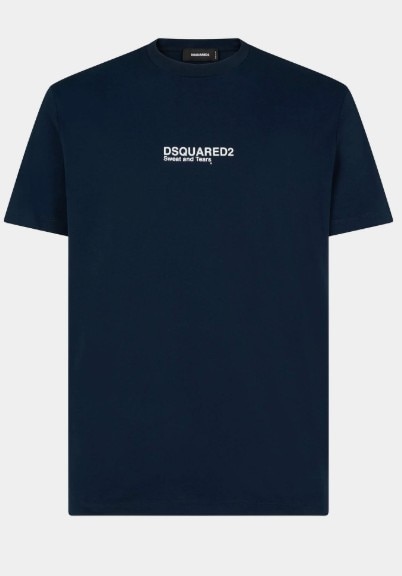
The brand founded by the Caten brothers is renowned for blending streetwear with high fashion. The T-shirt, often adorned with prints and logos, has become the perfect symbol encapsulating the brand's work of pluralism and hybridization.
Sporty T-shirts become fashionable
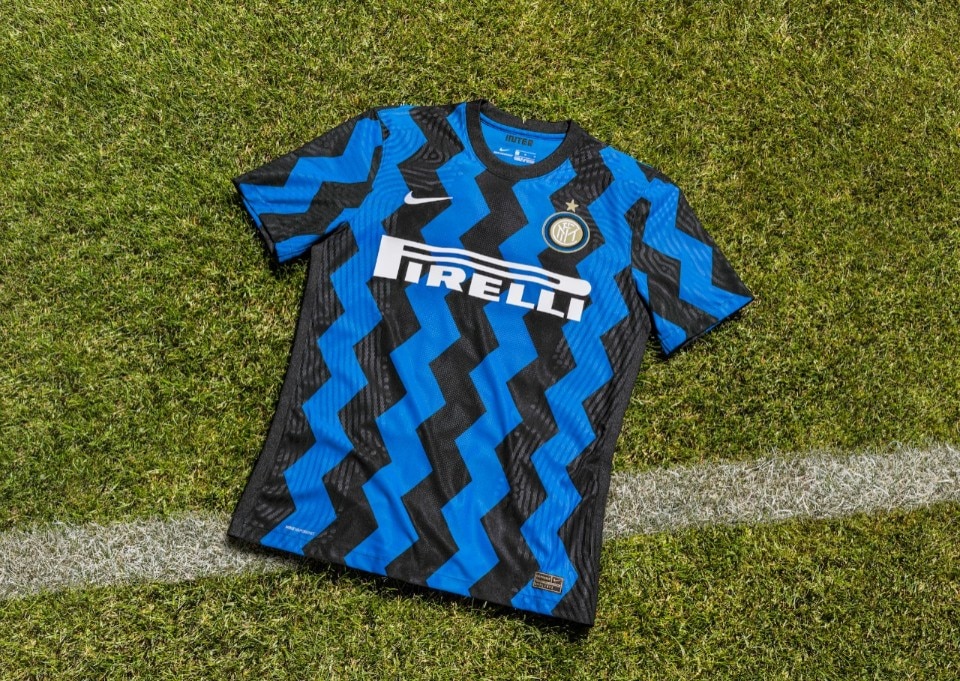
Wearing the sporty T-shirt, especially the football one, is not just a trend among fans. Recently, many fashion trends have embraced the sports kit, with the T-shirt being the ultimate versatile garment.
Anime T-Shirts to unite the fandoms
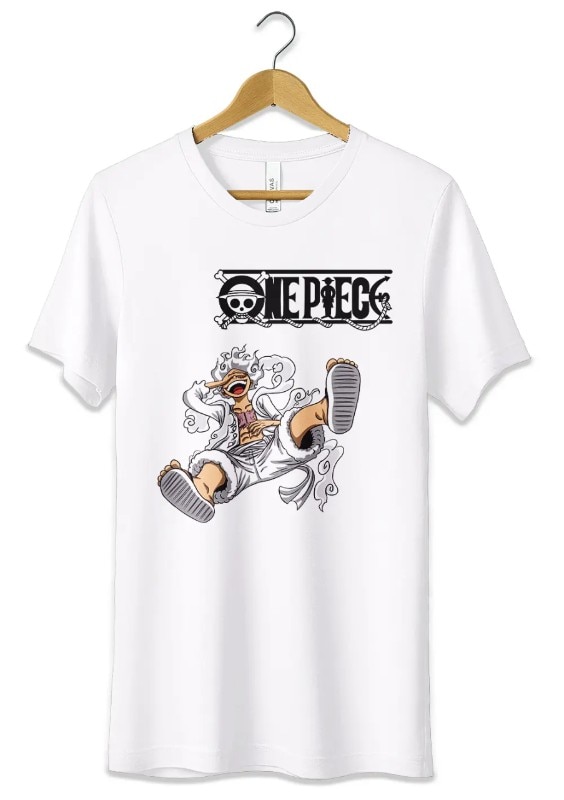
Wearing an anime-themed T-shirt, especially one featuring characters, scenes, or illustrations from your favorite anime/manga, has become a widespread fashion trend. This simple garment, such as an Attack Titan T-shirt, allows individuals to express their identity and affiliation with a specific fandom.
I <3 NY
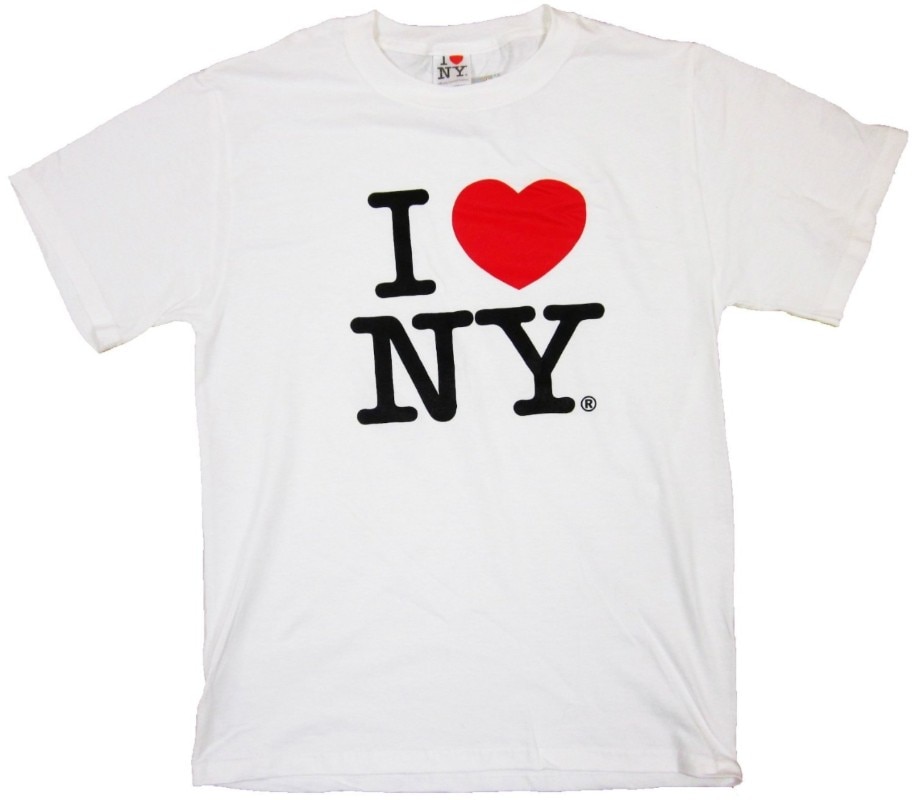
One of the most emblematic t-shirts of the 2000s and 2010s, I <3 NY is famous for its design so simple it seems almost cliché, the ultimate symbol of souvenir items.
Eddie's illustrations of Iron Maiden
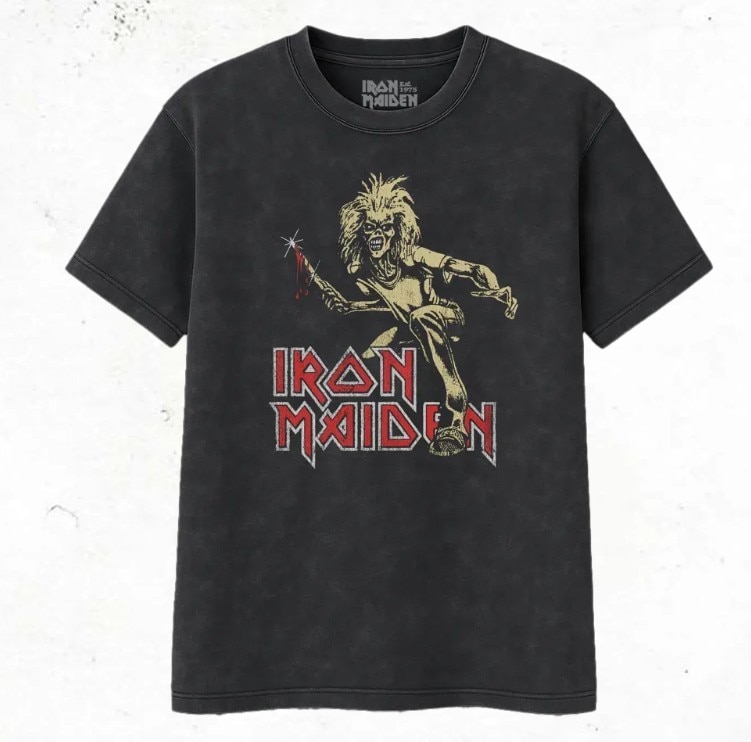
The ultimate rock icon T‑shirt, Iron Maiden pays tribute to the legendary band's album covers through the bold illustrations of Derek Riggs, who also created the band's mascot, Eddie the Head.
Zendaya's I Told Ya in Challengers
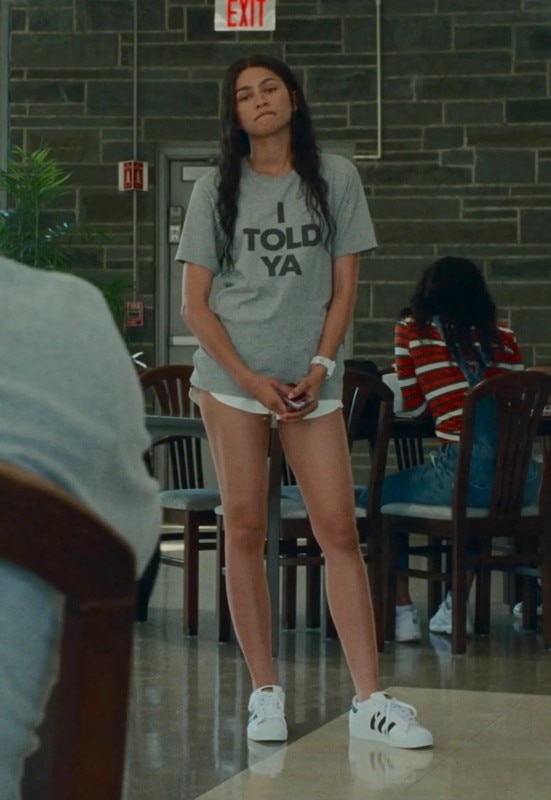
One of the most recognizable t-shirts in contemporary fashion, "I Told Ya" was created by Anderson, inspired by John F. Kennedy Jr. In addition to its appearance in the film The Challengers, the t-shirt was worn by both Zendaya and Josh O’Connor during the film's press tour.
Opening image: Jared Hess, Napoleon Dynamite, 2004




